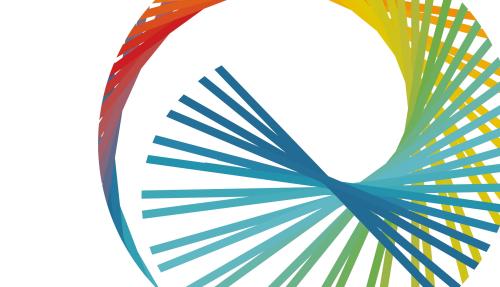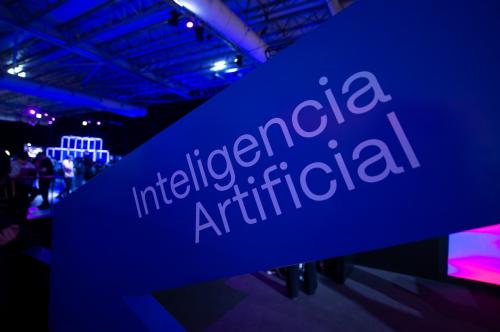Below is a viewpoint from Chapter 5 of the Foresight Africa 2018 report, which explores six overarching themes that provide opportunities for Africa to overcome its obstacles and spur inclusive growth. Read the full chapter on African technology, innovation, and digital potential here.
The digital internet age is presenting major opportunities in the development space in the 21st century. In every single sector, technology is disrupting the status quo: from financial access to property rights, from health to education, from energy to water, as well as government services, measurement of outcomes, implementation methods, and ways to connect to stakeholders like never before. For the first time in human history, we can theoretically connect to every single stakeholder. Technology can exponentially facilitate the achievement of development goals through rapid scale, and, hopefully, also provide dividends for the world’s poorest people.
While 20th century development goals remain and the historical challenges to development persist, technology introduces both new tools and new objectives. How is technology re-defining the development space?
Creating a fundamental shift in structure of economies
Modern economies have followed a growth trajectory that transformed economic structure from agriculture to manufacturing to services. The 21st century introduces the next economic structural shift, where value will be driven by digital assets, intellectual and knowledge goods, data, and information. Economies will derive comparative advantages from their ability to transform, utilize, and process digital sources of value. This change poses both opportunities—and threats—to the economic growth of emerging markets and developing economies. On one hand, technology can help countries overcome many barriers to growth across the board very quickly: from online education to maternal health tracking, from food tracking along the value chain to drone delivery of medicines, from the provision of government services through mobiles, to accessing international markets by producers. The success of M-Pesa shows that Africa’s large young population are tech savvy and quick to adapt to technological changes.
On the other hand, the digital divide separating economies that can adapt to new technologies to those who cannot can exasperate global inequalities, create poverty traps, and exacerbate vicious cycles of poverty.
Transforming the roles of producer and consumers, employers and self employed
In the digital age, technology has altered what traditional labor looks like. The 21st century saw the advent of consumers selling goods and services to other consumers at a global scale, acting both as producer and consumer. This includes the sale of personal goods online, such as through Amazon, eBay, and Etsy, to the sale of services, such as Airbnb, Uber, and Lyft, to financial services via peer-to-peer lending and crowd funding.
Within internet-facilitated peer-to-peer exchanges, shared economies allow optimization of underutilized resources by sharing access to goods and services among users—introducing an entirely new sector that generates additional income-earning opportunities. Shared economies blur the lines between formal versus informal sectors, producers and consumers, and employers and employees.
Not only does this new economic structure blur these lines but it also raises participation in the gig economy—nonpermanent employment usually across various tasks such as freelancing, impact sourcing, Uber driving, Samasource. org, Upwork (formerly eLance), and Airbnb. Most recent estimates indicate that as much as about 34 percent of the U.S. workforce participate in the gig economy, and this number is expected to rise to 43 percent by the year 2020.
Now, African countries are already some of the most active participants in international outsourcing platforms such as Upwork, and the Nigerian government launched a “Microwork for Jobs initiative” Naijacloud in 2013. With these increasing global job opportunities, it is an imperative to invest in education, particularly in STEM (science, technology, engineering, and mathematics) and language skills to ensure competitiveness in the future digital global economy.
Rethinking public provision and institutional relationships
Economic growth in 2018 and beyond depends on public sector digital adoption, just as much as on the private sector, to ensure a cohesive digital environment for growth and to maximize human welfare. “Govtech” is a growing area of technology that aims at increasing efficacy and efficiency of government functions. In particular, the internet and blockchain technologies facilitate the growth of decentralized networks that reduce the need for third-party verification and minimize bureaucracy.
Given that the internet now offers means of communicating like never before, it is changing the way that governments, citizens, and the private sector engage, as well facilitating global action, coordination, and implementation. From citizen engagement on pertinent policy changes, to greater facilitation of global trade, the advent of digital technology offers unprecedented opportunities to reimagine governing institutions not only to be better adapted to the 21st century, but to better the welfare and opportunities of all people on earth.
The Brookings Institution is committed to quality, independence, and impact.
We are supported by a diverse array of funders. In line with our values and policies, each Brookings publication represents the sole views of its author(s).






Commentary
Foresight Africa viewpoint – Rethinking African growth and service delivery: Technology as a catalyst
January 12, 2018